NYC’s Forgotten ‘War on Christmas Trees’
Discover how an obscure holiday crackdown affects festive street vendors today!


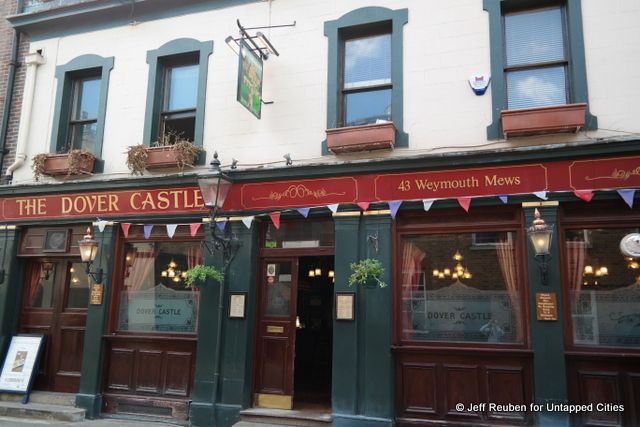
At Untapped Cities, we like to cover bars and restaurants that are off-the-beaten path. Interesting history, attractive design, and a convivial atmosphere make these hard-to-find places worth the search. Hidden and obscure places don’t need to be exclusive or elite, they are more like hidden gems waiting to be found. In London, mews pubs offer this in spades.
“Mews” (the word is both singular and plural) are alleys and courtyards created during pre-automobile times, when horse stables and simple housing for horse coachmen and their families were located behind the mansions and grand townhouses of the wealthy.
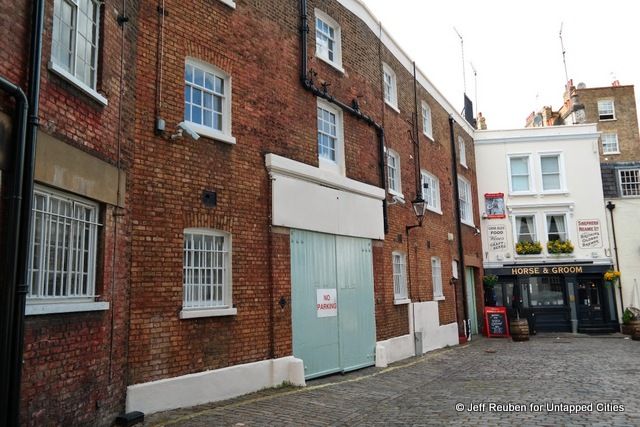
Since the early twentieth century, with horses gone, many mews buildings have transitioned from good housing bargains in upscale areas to upmarket real estate themselves. New York City has several mews, which we’ve covered before. But according to the encyclopedic Everchanging Mews website, London has 630 mews.
London, of course, also has thousands of pubs. Pubs, short for Public Houses, started centuries ago as places where people throughout the British Isles gathered for meetings, gossip, and pints of ale. They still serve this function today, with food options of increasing importance.
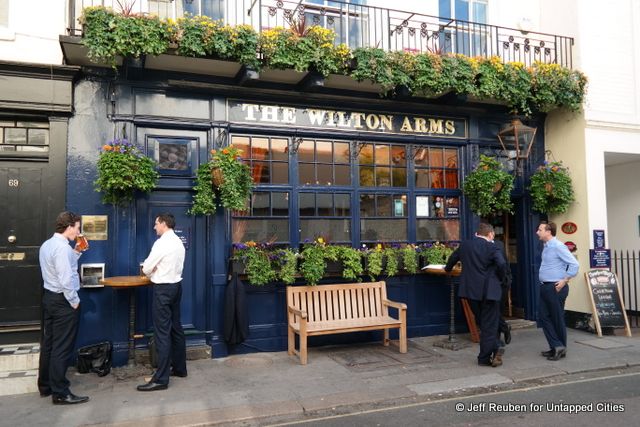
Given these numbers, it is not surprising that there are a number of pubs located on mews. The special quality of a London mews pub seems to be that it offers the charm and slower pace more associated with pubs in the countryside, but with the convenience of being in a great metropolis and accessible from public transport.
So, following in the footsteps of our previous forays to New York’s hidden bars and restaurants, come with us on a journey to ten mews pubs. For each location, we included the address and London postcode (equivalent to U.S. zip code, which is a helpful way to navigate a city that lacks the familiar grid of American cities). We’ve also listed a nearby London Underground “tube” station. Cheers!
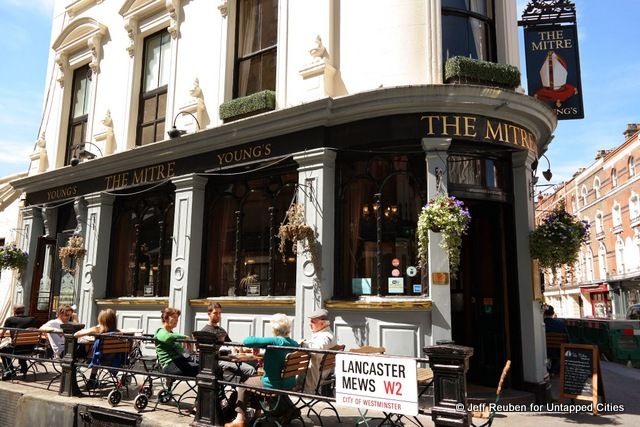
As with most of the mews pubs on our list, the Mitre, located in the Bayswater neighborhood, dates from the nineteenth century, in this case the 1850s. It is located at the entrance to Lancaster Mews, which retains a high proportion of its original buildings, according to Everchanging Mews.
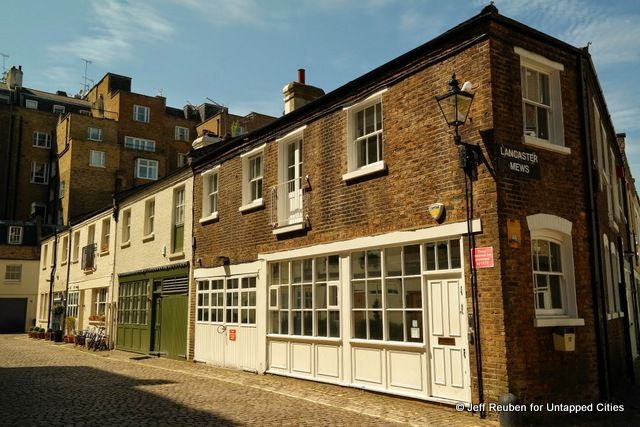
In the U.K. many pubs are owned by or affiliated with a certain brewery or pub company. The Mitre is a Young’s pub. Although ownership of the pub company is now separate from the Wells & Young’s brewery, the Mitre still serves Young’s beers including pale ales, ESBs, and stouts, as well as craft beers from other companies such as the U.S. brand Dogfish Head.
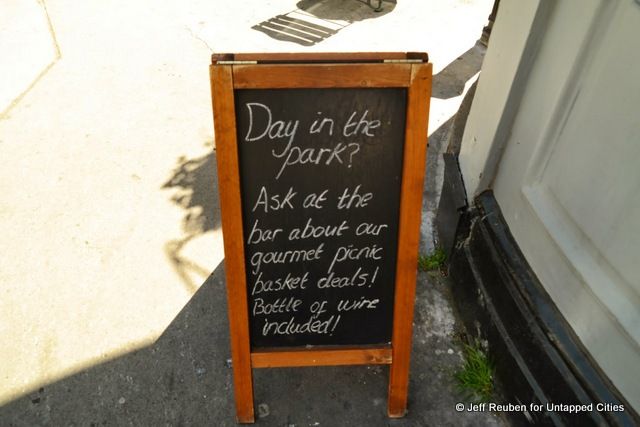
Besides the ground floor pub, in the basement there is Old Mary’s, a speakeasy with cocktails and craft beer available. Or, if you want to take your order on the go to nearby Kensington Gardens, the Mitre also offers picnic deals with beer or wine.
The Mitre, 24 Craven Terrace (corner of Lancaster Mews), London, W2. Tube: Lancaster Gate
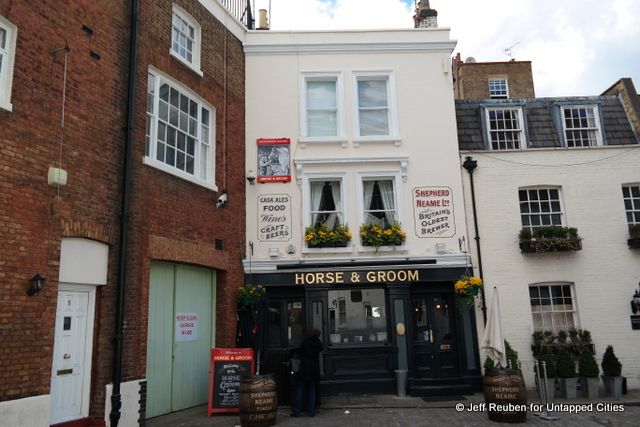
The Horse & Groom in Belgravia is nestled into the corner of Groom Place, which like most mews has little automobile traffic. Groom Place retains the architectural scale of an original mews with narrow low-rise buildings and paving stones. Originally called Chapel Place Mews, the street was renamed Groom Place in the 1930s, perhaps in tribute to the pub which has been on the street since the 1800s.
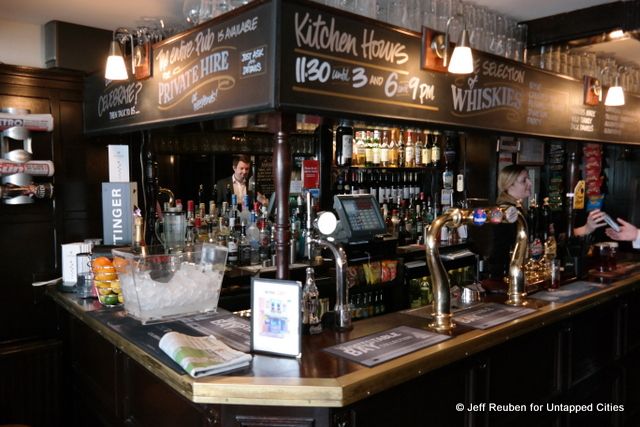
The Horse & Groom is affiliated with Shepherd Neame brewery, serving Spitfire and other ales on draught. It also offers wine and a food menu.
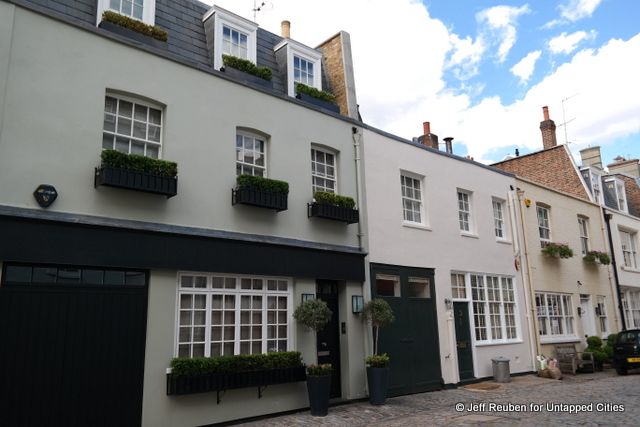
Groom Place residences
The Horse & Groom, 7 Groom Place, London SW1. Tube: Hyde Park Corner. (Closed weekends)
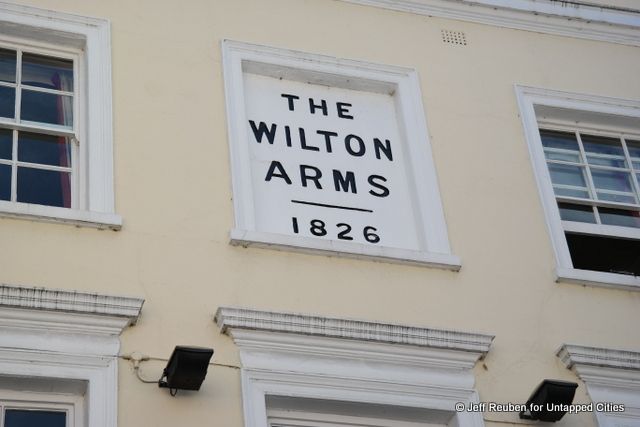
A few blocks northwest of the Horse & Groom, the Wilton Arms is located on Kinnerton Street. Despite its name, the Wilton Arms has a history similar to Groom Place. In fact, the Wilton Arms, built in 1826, is listed, meaning it is a historic building with a status similar to a designated landmark in New York City.
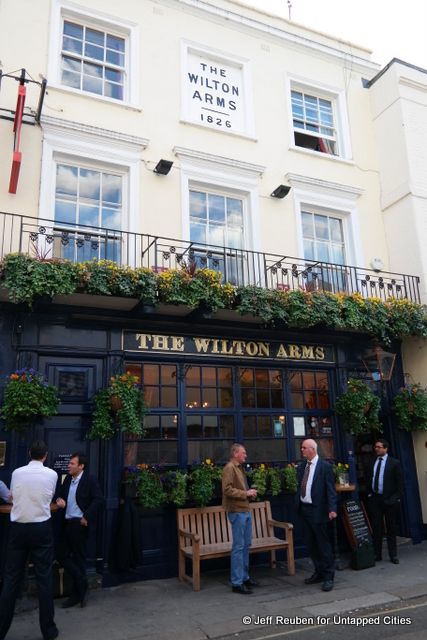
For historical purists, the Wilton Arms is worth a visit. Unlike other old pubs that have undergone extensive renovations at some point, the listing entry notes that it is “unusual, dated example of a surviving 1820s public house.” Kinnerton Street also has several well-preserved former stables and coach houses.
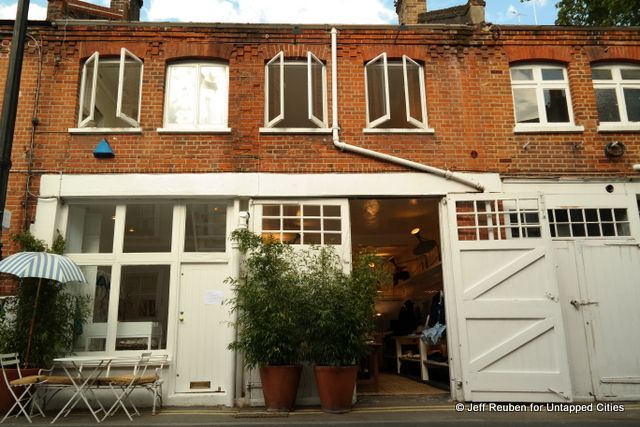
Former stable on Kinnerton Street converted to retail (Egg clothing boutique)
The Wilton Arms, 71 Kinnerton Street, London, SW1. Tube: Knightsbridge
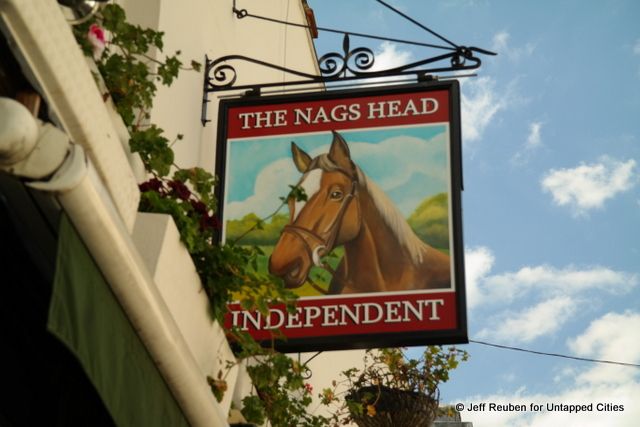
For those who want to do a mews pub crawl, the Nags Head is just a few doors down from the Wilton Arms. It’s a small place with lots of interior flair, but if there are no seats available inside, one can engage in the popular London practice of enjoying a drink outside in front of the pub.
Pub owners are called “publicans,” and the Nag’s Head publican is Kevin Moran, whose name is on the awning above the entrance. He has a no cell phone rule inside the pub in keeping with the chill setting he wants to maintain for his patrons. In a very upscale area, the Nag’s Head is very unpretentious.
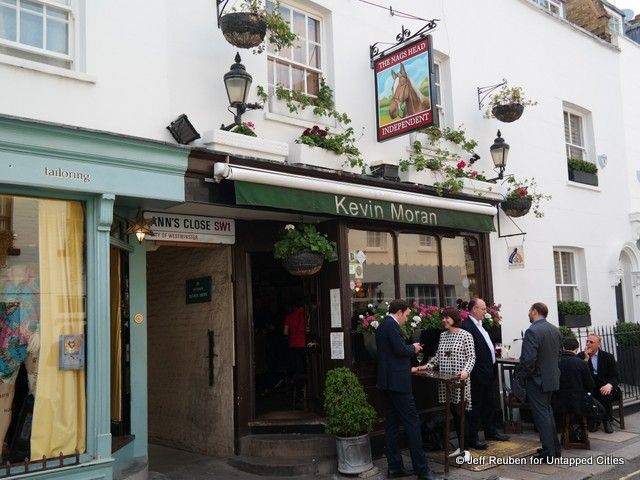
The Nags Head, 53 Kinnerton Street, London, SW1. Tube: Knightsbridge
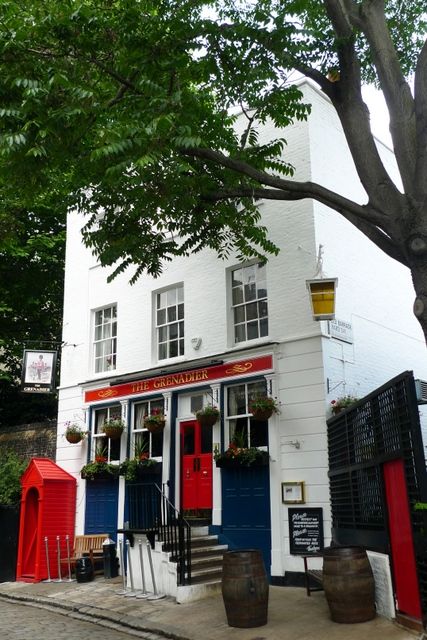
Photo by Ewan Munro. Via Wikimedia Commons
All mews pubs are a bit hidden. The Grenadier, a pub with military origins, is so well-embedded in the heart of a private Belgravia mews that finding it requires good directions and a bit of perseverance.
Although brightly colored in patriotic red, white, and blue, The Grenadier is tiny and located on a mews courtyard that branches off a winding mews called Wilton Row. The mews is privately owned and while it is open to pedestrians, vehicular access is restricted (hence no Google Streetview).
Named after a type of British Army combat officer, the Grenadier was originally built in about 1720 as an officers’ mess (in other words, a place where officers got their meals and relaxed away from the barracks). It has been a public house since 1818.
It’s worth the effort to find, both for the charming pub and for the village-like atmosphere of Wilton Row.
The Grenadier, 18 Wilton Row, London, SW1. Tube: Hyde Park Corner
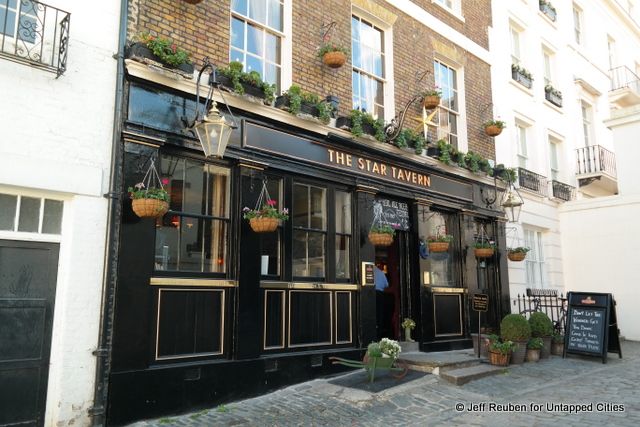
Yet another mews pub in Belgravia, the Star Tavern on Belgrave Mews West, is a listed building where many strata of London society have gone for a drink. It has a long and fascinating history, but is most famous (or infamous for) being the meeting spot for the gang of “gentlemen robbers” who carried out the Great Train Robbery.
The entrance to Belgrave Mews West is marked by an arch. Arches like this provided an attractive feature to distract from and partly block views of conditions in the mews from the main streets, so as to not spoil the classy character of this exclusive neighborhood.
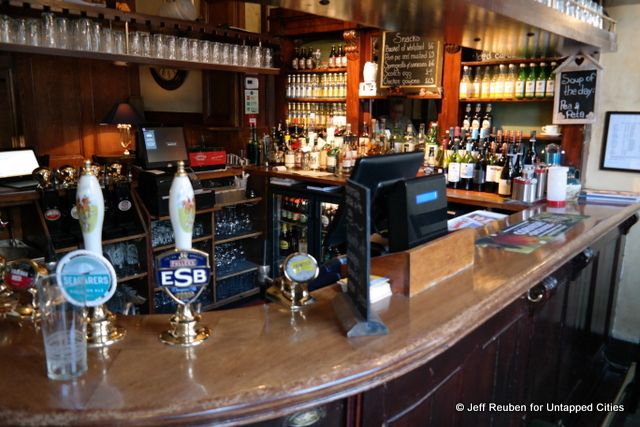
The Star Tavern is a Fuller’s pub, featuring Fuller’s London Pride and other beers from the company. The Fuller’s Brewery in Chiswick, West London has been operating since 1845 and offers public tours.
The Star Tavern, 6 Belgrave Mews West, London, SW1. Tube: Victoria
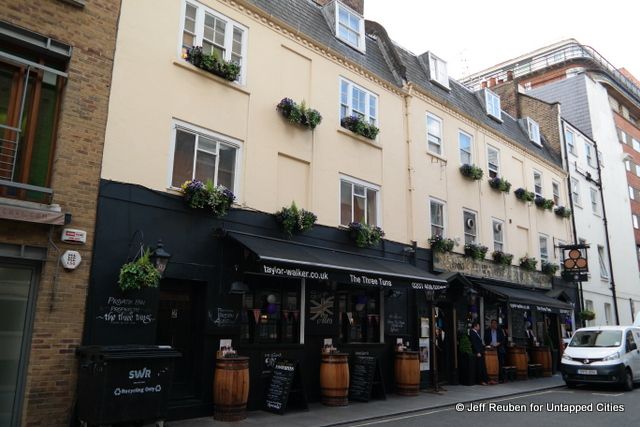
According to records on the Pub History website, the Three Tuns on Portman Mews South in Marylebone has been at this location since at least 1841, when there were 18 pubs of that name in London. Most of the other Three Tuns are gone, though it still remains a common pub name throughout England (tun is an old English word meaning a “brewing vat” or “cask”).
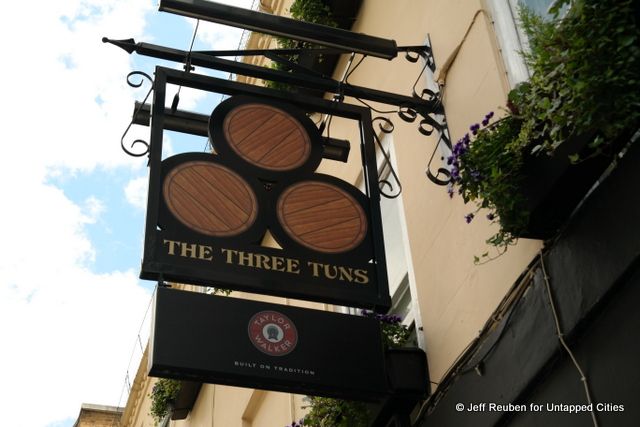
This Three Tuns and the two buildings housing it are the last vestiges of historic Portman Mews South. Many of the other buildings there were badly damaged in bombing raids by the Nazis during World War II. Today, most of the structures facing the narrow street are large, multi-story affairs built after the war.
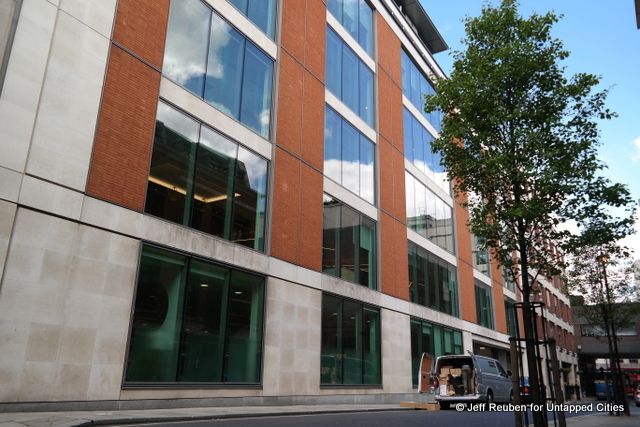
Post-war building on Portman Mews South
The Three Tuns is a nice place to have a relaxing pint and sit by the fireplace after braving the crowds of nearby Selfridges department store and Oxford Street, a major shopping hub.
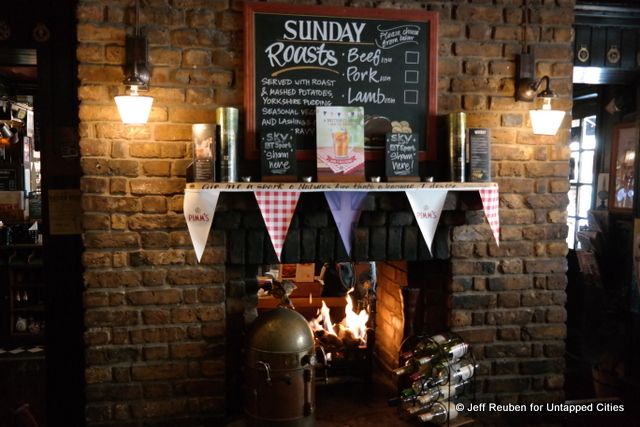
The Three Tuns, 1-2 Portman Mews South, London W1. Tube: Marble Arch
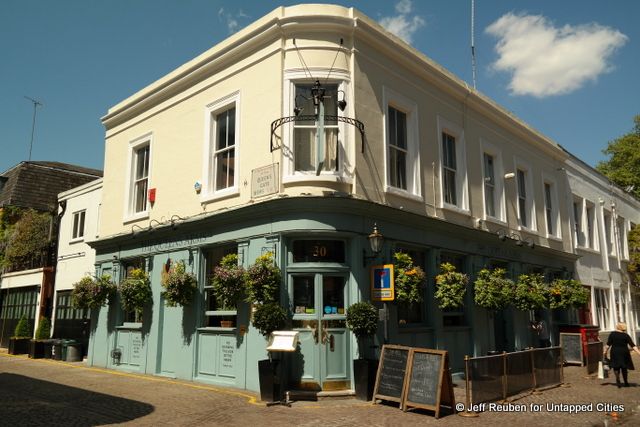
The Queen’s Arms, located in South Kensington near the Queen’s Gate to Hyde Park, is not tied to a specific brewing company. Nevertheless, the pub takes beer very seriously.
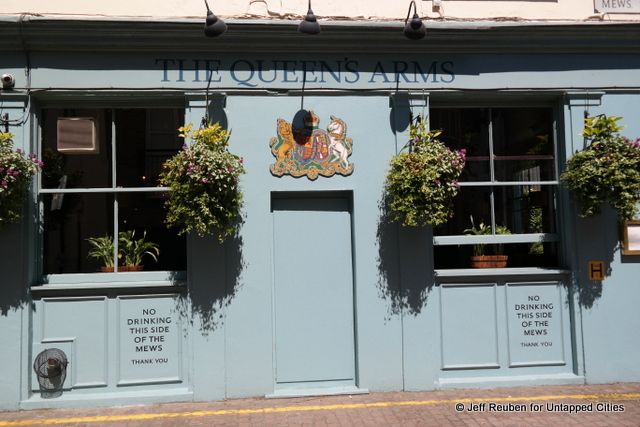
It is accredited by Cask Marque for properly serving cask ale, also known as “real ale,” which is ale that is unpasteurized, naturally carbonated, and conditioned in the cask.
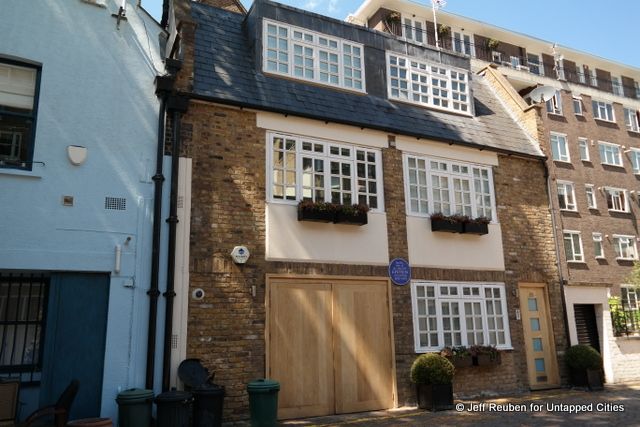
Blue plaque on 24 Queens Gate Mews; former studio of sculptor Sir Jacob Epstein
Besides its great beer credentials, the Queen’s Arms is in a culturally rich area. Many visitors to nearby Royal Albert Hall stop by before or after a show and down the street on Queen’s Gate Mews is the former studio of New York-born sculptor Sir Jacob Epstein.
The Queen’s Arms, 30 Queens Gate Mews, London, SW7. Tube: Gloucester Road
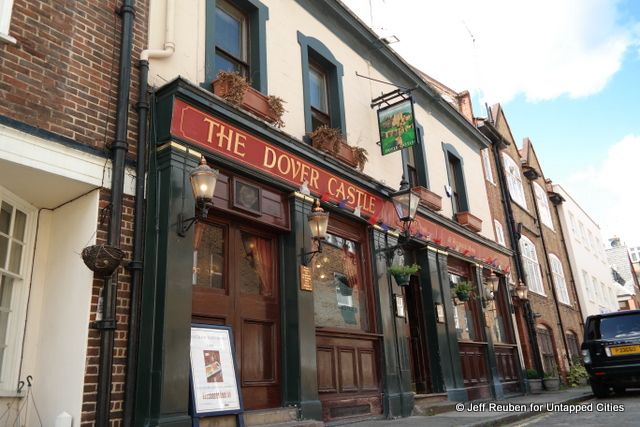
The Dover Castle in Marylebone is a Samuel Smith’s pub. Sam Smith (no, not the singer) is a low-profile brewery located in Yorkshire, northern England, renowned among many craft beer fans. The late beer writer Michael Jackson (no, not the singer) praised the brewery’s brown ale as the “richest, maltiest, and nuttiest of all.”
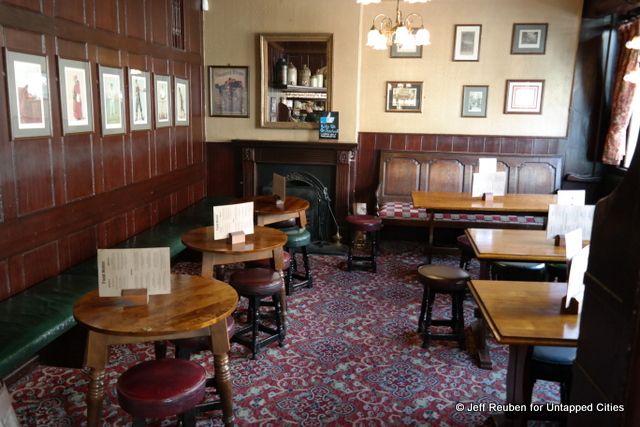
The Dover Castle has an old club feeling, not a dance club mind you, but a place where folks can enjoy a game of backgammon and a pint. If you’re looking to do the moonwalk or sing karoake, you’re in the wrong place.
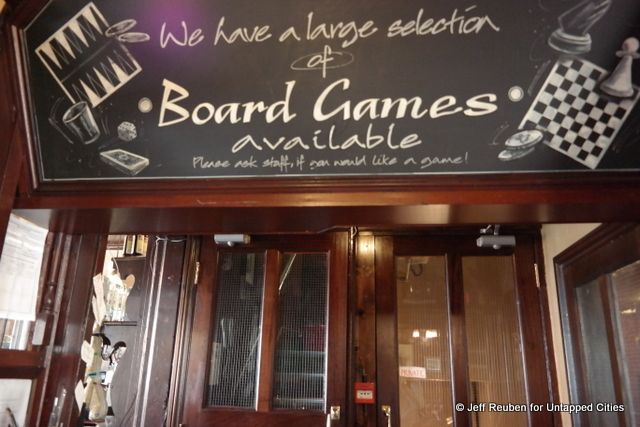
The Dover Castle, 49 Weymouth Mews, London, W1. Tube: Regent’s Park
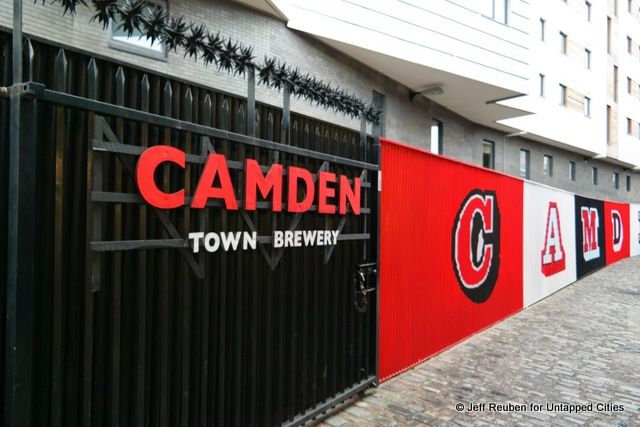
While the other pubs on this list have long histories, Camden Town Brewery on Wilkins Street Mews opened in 2010 as an independent craft brewery with an on-site pub.
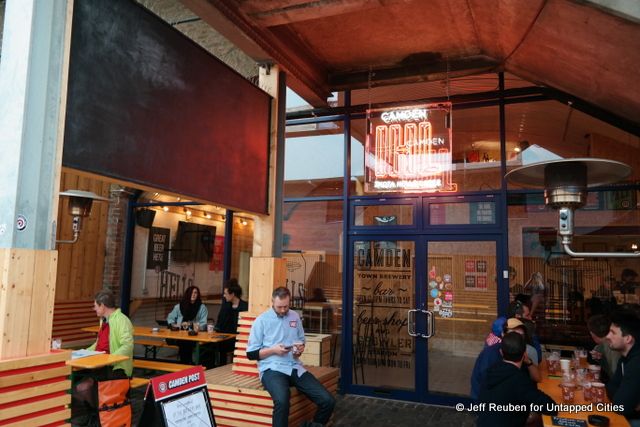
Camden Town Brewery has been a leader in the the craft beer revival in the U.K that has emerged in recent years, following trends in the U.S. It is building a second brewery elsewhere in London, and in December 2015, was acquired by AB InBev, which is the world’s largest brewing conglomerate.
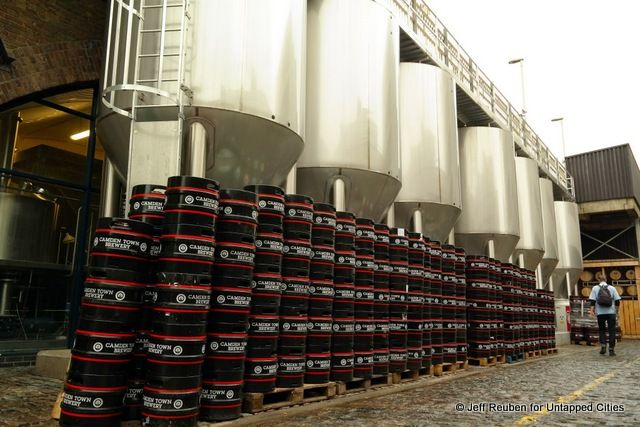
Wilkins Street Mews is also unlike the other mews we’ve covered in that it runs along side an elevated train structure. Camden Street Brewery occupies space in the rail viaduct arches and its large brewing kettles face directly onto the mews. Whatever the future holds for Camden Town Brewery, at present, Wilkins Street Mews is a great place to drink fresh brewed beer.
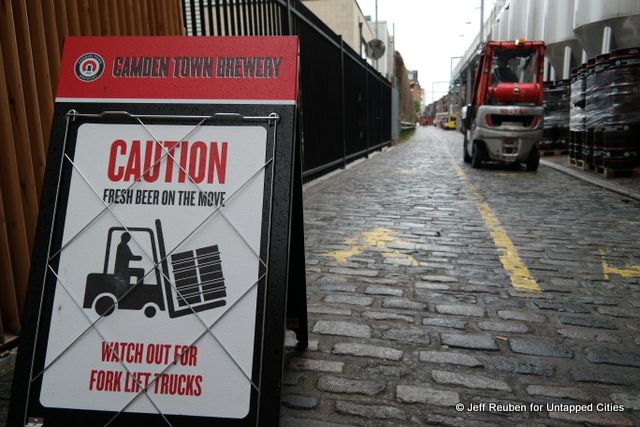
Camden Town Brewery, 55-59 Wilkins Street Mews, London, NW5. Tube: Kentish Town West (London Overground)
Next, check out an illustrated pub crawl of Hammersmith in London, New York City mews, and hidden bars and lounges of New York. Contact the author @Jeff_Reuben
Subscribe to our newsletter